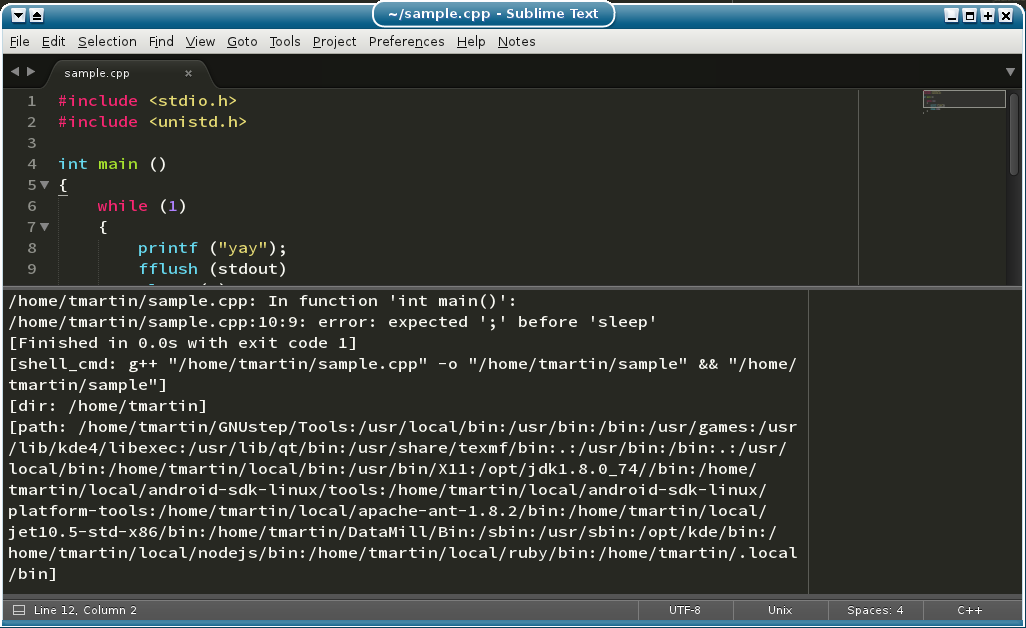Operating System : Ubuntu 16.06 gnome
I am using sublime text 3 for Ruby programming. When I execute my code.rb file from terminal it executes successfully, but when I try to build a file inside my sublime editor with Ctrl+B it prompts me following error:
/bin/bash: ruby: command not found
[Finished in 0.0s with exit code 127]
[shell_cmd: ruby “/media/fsociety/New Volume/workplaces/RubyOnRail/modules_And_Mixins.rb”]
[dir: /media/fsociety/New Volume/workplaces/RubyOnRail]
[path: /usr/local/sbin:/usr/local/bin:/usr/sbin:/usr/bin:/sbin:/bin]
Please help me ASAP, I looking for this solution from previous 18 hours. Thanks


